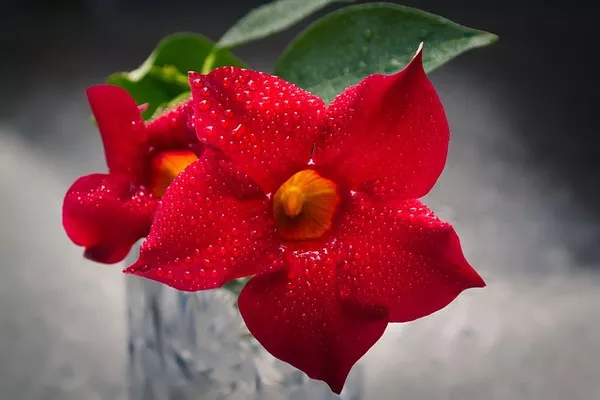As the holiday season approaches, festive decorations adorn homes, and the sweet scent of seasonal flowers fills the air. Among these blooms, the Christmas Rose (Helleborus niger) stands out as an emblematic winter flower, often associated with the joy and warmth of the holiday season. However, a lingering question arises for those who appreciate not only the aesthetics but also the culinary potential of plants: Is the Christmas Rose edible?
Understanding the Christmas Rose:
The Christmas Rose, native to the mountainous regions of Europe, is a hardy perennial known for its striking white or pinkish blossoms that typically bloom in late winter. Despite its enchanting appearance, it’s crucial to recognize that the Christmas Rose belongs to the genus Helleborus, which includes several species containing toxic compounds.
Toxic Components:
Helleborus species, including the Christmas Rose, contain a group of compounds known as cardiac glycosides. These substances are toxic to humans and animals, affecting the heart and leading to symptoms such as nausea, vomiting, abdominal pain, and, in severe cases, cardiac arrest. Therefore, it is imperative to exercise caution when considering the edibility of the Christmas Rose.
Historical Perspective:
Historically, Helleborus species were employed in traditional medicine, albeit with extreme caution due to their toxicity. In ancient times, these plants were believed to possess medicinal properties, with roots and extracts used in minute quantities for treating various ailments. However, the risk of toxicity always loomed large, and the therapeutic use of Christmas Rose has largely been abandoned in modern herbal medicine.
Edibility Concerns:
While some plants have toxic parts and edible parts, the Christmas Rose presents a particularly high risk due to the widespread distribution of toxic compounds throughout the plant. Unlike other flowers used in culinary applications, the Christmas Rose doesn’t have a history of being consumed, and any attempt to do so can pose serious health risks.
Expert Opinions:
Botanists and horticulturists unanimously caution against the consumption of the Christmas Rose. Dr. Lily Johnson, a renowned botanist specializing in toxic plants, emphasizes, “The Christmas Rose contains toxic compounds that can have severe health implications, and there is no documented evidence or traditional use supporting its edibility. It is crucial for individuals to be aware of the potential risks associated with consuming any part of this plant.”
See Also: How does Christmas impact the floral industry?
Alternative Culinary Uses:
While the Christmas Rose may not be suitable for consumption, it has found its place in various non-edible aspects of holiday traditions. The flowers are often used in festive floral arrangements, wreaths, and as decorative elements in holiday celebrations. Appreciating the Christmas Rose for its visual appeal rather than its gastronomic potential ensures a safe and enjoyable experience for all.
Cultivation and Garden Safety:
For avid gardeners interested in cultivating the Christmas Rose, it is essential to exercise caution and follow recommended safety measures. Wear gloves when handling the plant, especially during pruning or transplanting, and be diligent in keeping children and pets away from the area. Awareness of the potential risks associated with the Christmas Rose enhances the overall safety of gardening endeavors.
Conclusion:
In the enchanting tapestry of holiday flora, the Christmas Rose holds a special place as a symbol of winter beauty. However, its toxic nature underscores the importance of distinguishing between aesthetic appreciation and culinary application. The Christmas Rose, with its potentially harmful compounds, should not be considered edible. As we revel in the festive spirit, let us cherish the Christmas Rose for its visual allure while remaining mindful of the potential risks associated with its consumption. By prioritizing safety and understanding the unique characteristics of this winter blossom, we can ensure a joyful and healthy holiday season for all.


